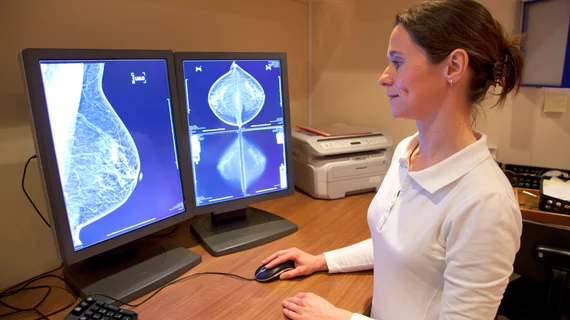Strategies that prioritize reads for women undergoing baseline mammograms could not only expedite diagnosis and substantially reduce recall rates, but they could also close problematic gaps in follow-up care.
In this respect, authors of a new paper published in the Journal of the American College of Radiology highlighted two groups of women who could benefit the most from immediate interpretations—women presenting for baseline screening and women who have not had a screening in five or more years [1]; in a study cohort that included a total of 2,674,051 screening mammograms, these factors were found to result in the highest recall rates.
“For facilities that can only offer immediate interpretation to a subset of women, prioritizing those most likely to be recalled may considerably reduce the number of women being recalled for diagnostic imaging at a follow-up visit,” corresponding author of the paper Diana L. Miglioretti, PhD, of the Department of Public Health Sciences at UC-Davis School of Medicine, and colleagues suggested.
Prior research has indicated that as much as 20% of women do not comply with follow-up recommendations. Immediate interpretations could allow for an immediate diagnostic workup, rather than delaying the additional exams that many women could end up foregoing.
In this study, experts found that recall rates were very high (21.3/100) for baseline mammograms and for women with at least a five-year gap in between mammograms (15.1/100). Women younger than 50-years-old and women with dense breasts were also subject to increased recall rates.
“Radiology facilities could use our results to schedule women for immediate mammography interpretation and possible same-day diagnostic evaluation based on their capacity to do so,” the authors suggested.
The authors acknowledged that the ability to prioritize reads can be carried out in a number of ways depending on facility-specific factors. However, they highlighted their findings specific to age as the best blanket approach, with priority being given to exams on women who are less than 50 years in age as this could avert up to 1/5 of recalls.
To learn more, click here.

